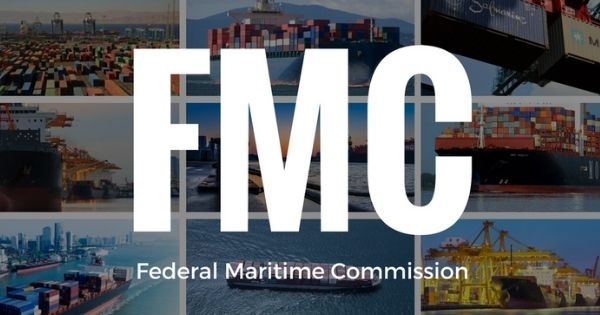
FMC says D&D cases trebled since pandemic, set to reach historical highs
WASHINGTON DC : Detention and demurrage (D&D) cases handled by the Federal Maritime Commission (FMC) in the United States have trebled since the pandemic and are set to reach historical highs by the end of the year.
FMC commissioner Carl Bentzel said that cases reaching the late-stage litigation had trebled, forcing the organisation to recruit two more administrative court judges, who now total three, to deal with the number of cases being handled.
“Even so only around 5%-10% of cases reach the litigation stage with most disputes being settled before the point where litigation is needed,” Bentzel told Container News.
Currently, there are around 56 formal cases being heard and another 31 small claims, but within that, the number of incidents can be huge, as demonstrated by the recent case brought by Samsung Electronics America, which numbers 96,000 D&D charge incidents in its litigation with HMM.
However, Bentzel also said that the vast majority of cases never make it to the later stages, but are settled through the FMC’s dispute resolution process, and with cases involving US$12 billion worth of billings since the pandemic, the organisation’s legal team remains “underpowered”, with the recruitment of an administrator currently in process.
Most of the cases now being brought are for refusing service or acting in bad faith, but Bentzel said that most of the contracts are “service contracts and are necessarily binding”.
“These are minimum volume contracts, which are loosely worded to allow either the shipper or the carrier the flexibility not to perform,” said Bentzel.
Another industry figure, who wanted to remain anonymous said these contracts were “aspirational”, in that shippers and carriers aspired to carry these levels of cargo, allowing either player that signed the contract the ability to switch to the spot market when it is beneficial to them.
“Few of these cases would stand up in a Federal Administrative court because they are just not very well defined,” said Bentzel, which leaves the FMC to adjudicate when there is a dispute, he agreed, that the process has now become more about arbitration than litigation.
The simplification of bringing cases to the FMC’s attention has effectively ramped up the number of D&D cases being heard, but the mere threat of being referred to the FMC’s litigation service now carries more weight and companies prefer to settle.
“We’re working with industry to set the precedents,” with the legislation still comparatively new, it was originally introduced in mid-2022, and there was a large slew of cases originating from the pandemic and the congestion that was endemic in that period.
With the cases taking 18 months to two years to be processed Bentzel is expecting “a slug of new cases going forward,” as a result of the congestion currently being generated by the Red Sea diversions.
“I have been in discussions with the State Department because I want to investigate and explain the impact of the Red Sea crisis and the failure of governments to maintain the laws of the sea and the law of innocent navigation,” explained Bentzel.
It is not that Bentzel wants to understand the impact of the failure of governments on a broader scale.
“If Tesla stops its German production because it cannot get the components it needs then what is the impact on Tesla, the German economy and the broader shipping industry?” asked Bentzel, who added with emphasis, “We need to pay attention to the Red Sea”.

